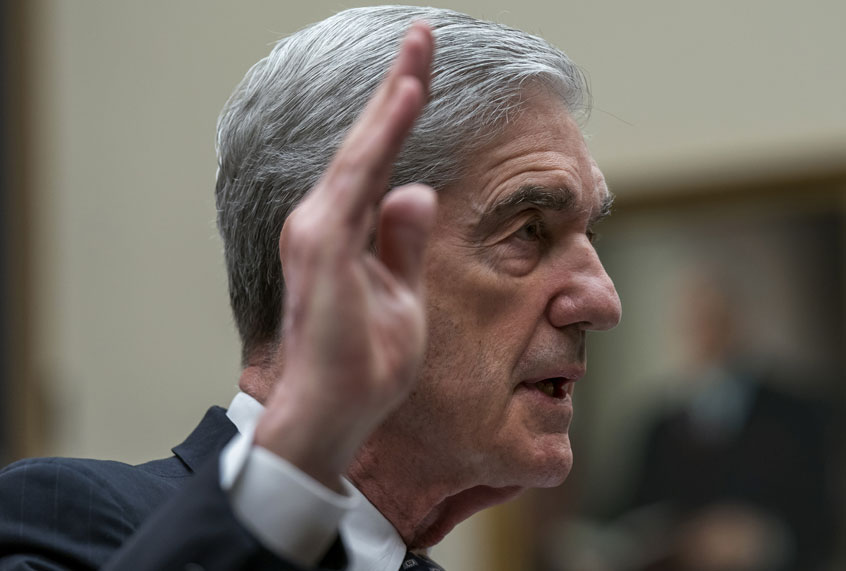It was almost a throwaway moment, but under questioning by Florida Democrat Rep. Val Demings, former special counsel Robert Mueller let slip a new admission in his congressional testimony Wednesday with the potential to alter the terrain of the impeachment debate.
The Florida lawmaker pressed the ex-Marine on the president’s sworn written answers to questions provided by the special counsel, given in lieu of a formal interview, which Donald Trump refused.
“Isn’t it fair to say that the president’s written answers were not only inadequate and incomplete — because he didn’t answer many of your questions — but where he did that his answers showed he wasn’t always being truthful?” Demings asked Mueller in the hearing.
Mueller, who was usually avoided making admissions that weren’t included in his report and who employed a creative range of deflections to skirt unwanted questions, surprisingly took the bait.
“I would say . . . generally,” he conceded.
And according to a New York Times report published after that testimony citing congressional aides, “Mr. Trump’s answers are becoming additional fodder for the internal debate among House Democrats about whether to open an impeachment inquiry into Mr. Trump.”
The report suggests that Mueller may have been referring to Trump’s written denial “that he knew in advance about the timing of the release of hacked emails or their contents” during the 2016 campaign. The Mueller report indicates that Deputy Campaign Chair Rick Gates told the special counsel that, in fact, Trump received a phone call during the campaign and said new releases of stolen emails would be forthcoming.
Michael Cohen, too, told Congress that Roger Stone called Trump and told him about WikiLeaks’ plans to publish emails damaging to Hillary Clinton’s campaign. Stone has denied this claim.
There may be additional information relevant to these claims in the Mueller report, but many of the sections appearing to pertain to Stone are redacted as the criminal case against him is pending.
It’s not clear, however, if these remarks are what Mueller had in mind when he said Trump’s answers were untruthful. He may have also been referring to the excessive number of times Trump claimed he couldn’t “recall” the answers to certain questions. It’s also possible that, while Mueller concluded some of answers weren’t “truthful,” he may have not been able to determine that the answers were intentional — and thus criminal — lies. It’s notable that the report does not appear to include any section assessing the question of whether Trump lied under oath.
The Daily Beast reported Wednesday after Mueller’s comments that Trump’s lawyer, Jay Sekulow, was caught off guard by the claim that the president was untruthful.
Mueller “never said that to us,” Sekulow said.


